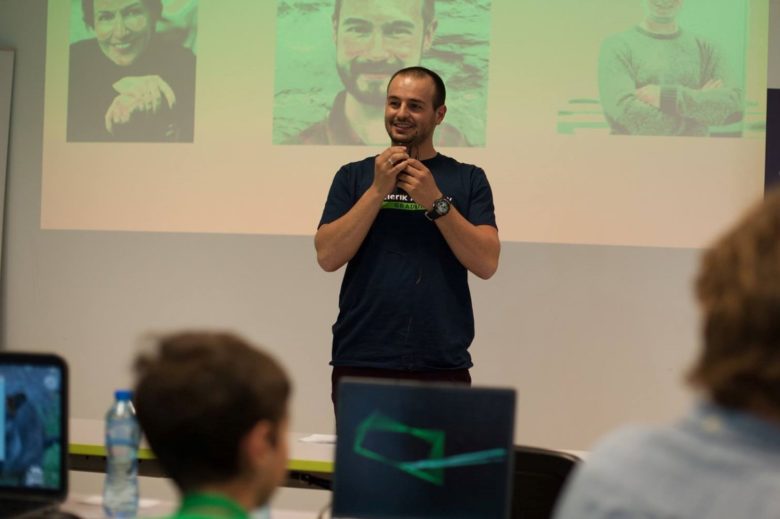Telerik Academy School Crowdsourced over $20K to Expand to Five New Cities and Teach More Kids Digital Skills

With over 10K kids and high-school students trained in coding and digital skills, Telerik Academy School is the largest private and free educational initiative in Bulgaria. In March, the non-for profit project has managed to collect $21K donations through the NGO crowdfunding platform Global Giving Accelerator. In 18 days, its mission to bring digital skills to 12K kids and teenagers in Bulgaria by 2021 has attracted over 160 donors and ranked third among charity programs from all over the world.
“Our participation in the Global Giving Accelerator is part of the greater mission to involve the society in the process of equipping the next generation with the skills needed in the future economy,” tells us Peter Sharkov, General Manager of Telerik Academy School. In nine years since the start of the initiative, over 10K students have been through diverse free training courses in 15 cities. “Our goal is to expand to five new cities and train additional 2K kids in the next two semesters,” he adds.
From game consumers to game developers
With more than 65 parallel groups annually, only last year 1700 students have been trained. The academy offers courses in three age groups – between 1st and 3rd grade, 4th-7th grade, and 8th-12th grade. According to the group, the topics vary from visual coding for the youngest to game development, competitive programming and digital sciences for the older students. The curriculum of each course consists of 100 hours and is not directly related to schools subjects.
“Of course, game development is the most sought after field. At the end of the day, this helps us turn students from consumers into creators – after 100 hours of training the students are capable of developing own games,” smiles Sharkov. According to him, the academy doesn’t aim to produce programmers only, but make kids think logically, creatively and be able to communicate in one more language. JavaScript and Python are among the most liked and easily accepted languages.
Replicable model
The led by Peter Sharkov program is one of the two major tech-ed endeavors of Telerik’s founders: Telerik Academy – an initiative for an IT career jumpstart and Telerik Academy School – a non-profit organization preparing children for the jobs of the future.
One of the goals of Telerik Academy School is to develop teaching programs that are easily replicable outside the capital city Sofia, where the courses were historically started and attract the greatest interest. The management decides on new classes and locations based on the interest from at least 15 children, a teacher (often school teachers, but also developers with no teaching background) and the physical space. Usually, because the initiative is free, around 40% of the applicant get accepted, and the foundation trains and pays the trainers. Telerik Academy School is working with 35 trainers in Bulgaria.
“A full year of training for 25 kids is worth €3.5K, we’ve estimated one hour of training for 20 children costs us around €30,” says Sharkov. So far, the academy has been financed mostly through municipalities, several IT companies, and America for Bulgaria Foundation he adds. The Global Giving Accelerator was a test to prove whether society would back such a project. Among 800 listed projects in the first days of fundraising, the school academy was the first to collect $5K from 40 donors – the minimum threshold for a project to be accepted on the platform, shares Petar Sharkov.
The first fruits and the long-term goal
Nine years after the first class of Telerik Academy School, back then part of the IT company Telerik, the very first cohorts who have been through the whole program from 4th to 12th grade, are about to graduate high school and either pursue higher education or start working. Often students, who have been through the courses in the 8-12th-grade courses, continue to the career start programs of the academy, that are paid and in partnership with local IT companies.
“The longer-term goal is not only to fill the talent gap on the market. We want to make it possible for young and motivated people to find a career in Bulgaria, instead of abroad, and why not – even if their own hometowns,” says Petar Sharkov.
+++recommended: Theory and Practice of the Unicorn Production+++





























